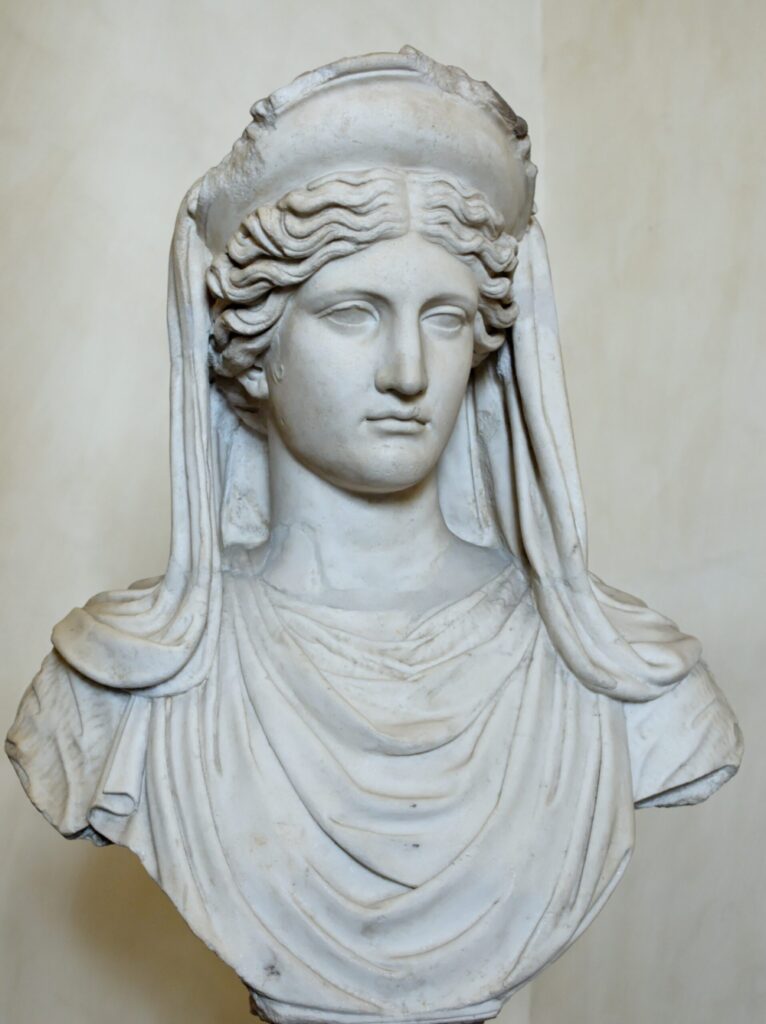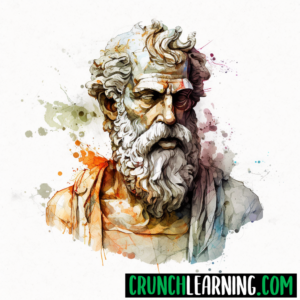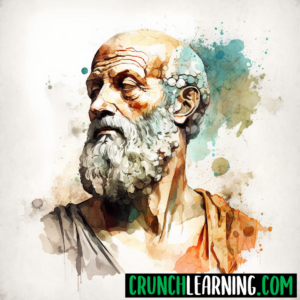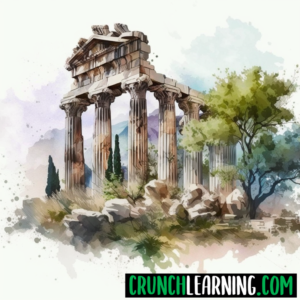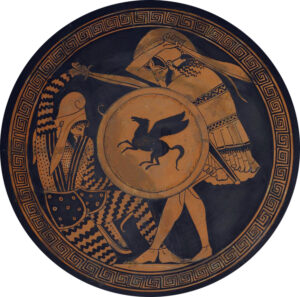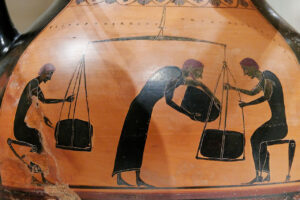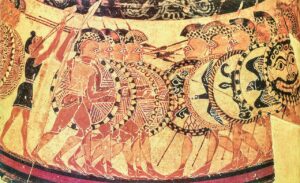Demeter is one of the most important goddesses in ancient Greek mythology. For instance, she was the goddess of agriculture, fertility, and harvest. She was often depicted as a mature woman, holding a cornucopia or sheaf of wheat, symbols of her role as the goddess of the harvest. Her influence was widespread and she was worshipped by many communities throughout Greece. In this article, we will delve into the fascinating history and significance of this ancient Greek goddess and explore her connections to ancient Greek mythology, her impact on the ancient Greece culture, and her overall significance.
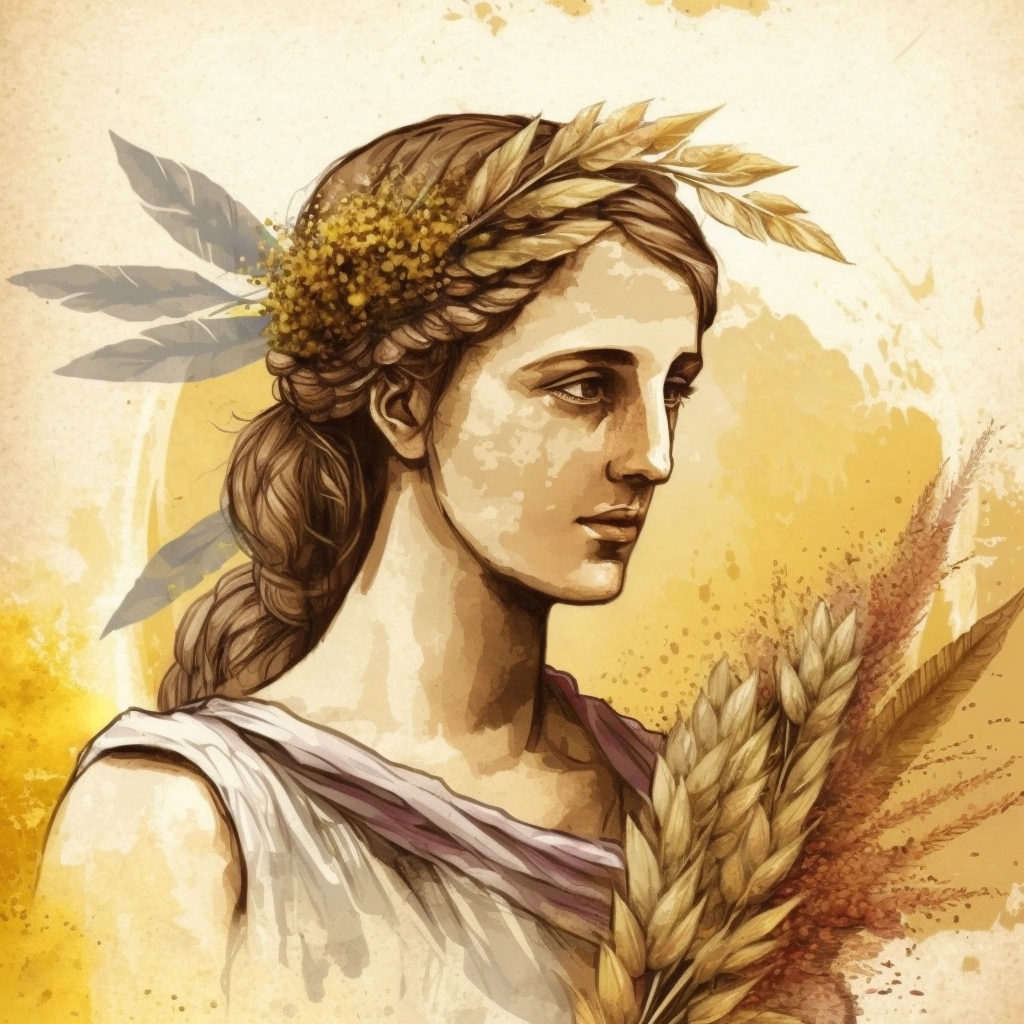
Origins and Family
Demeter is one of the twelve Olympian gods and goddesses who supposedly lived on Mount Olympus. Her parents were Cronus and Rhea, two of the Titans who ruled over the world before the rise of the Olympian gods and goddesses. Furthermore, se was the sister of Zeus, Poseidon, and Hades. She was considered a gentle and nurturing goddess who was dedicated to her duties and responsibilities.
As well, Demeter was mother to Persephone, another ancient Greek goddess. Persephone became the queen of the underworld in ancient Greek mythology.
Demeter and Ancient Greek Mythology
Demeter was an important figure in ancient Greek mythology. One of the most well-known myths surrounding Demeter is the story of her daughter, Persephone. According to the myth, Persephone was kidnapped by Hades, the god of the underworld, and taken as his bride. Demeter was devastated by the loss of her daughter and withdrew from the world, causing a famine and drought to spread across the land. The other gods and goddesses, realizing the importance of her role in agriculture, intervened and Persephone was eventually returned to the world.
This myth is often interpreted as an allegory for the changing of the seasons. The story of Persephone’s abduction represents the end of summer and the beginning of winter, while Demeter’s mourning symbolizes the barren winter months. The eventual return of Persephone to the world represents the arrival of spring and the start of new growth and fertility.
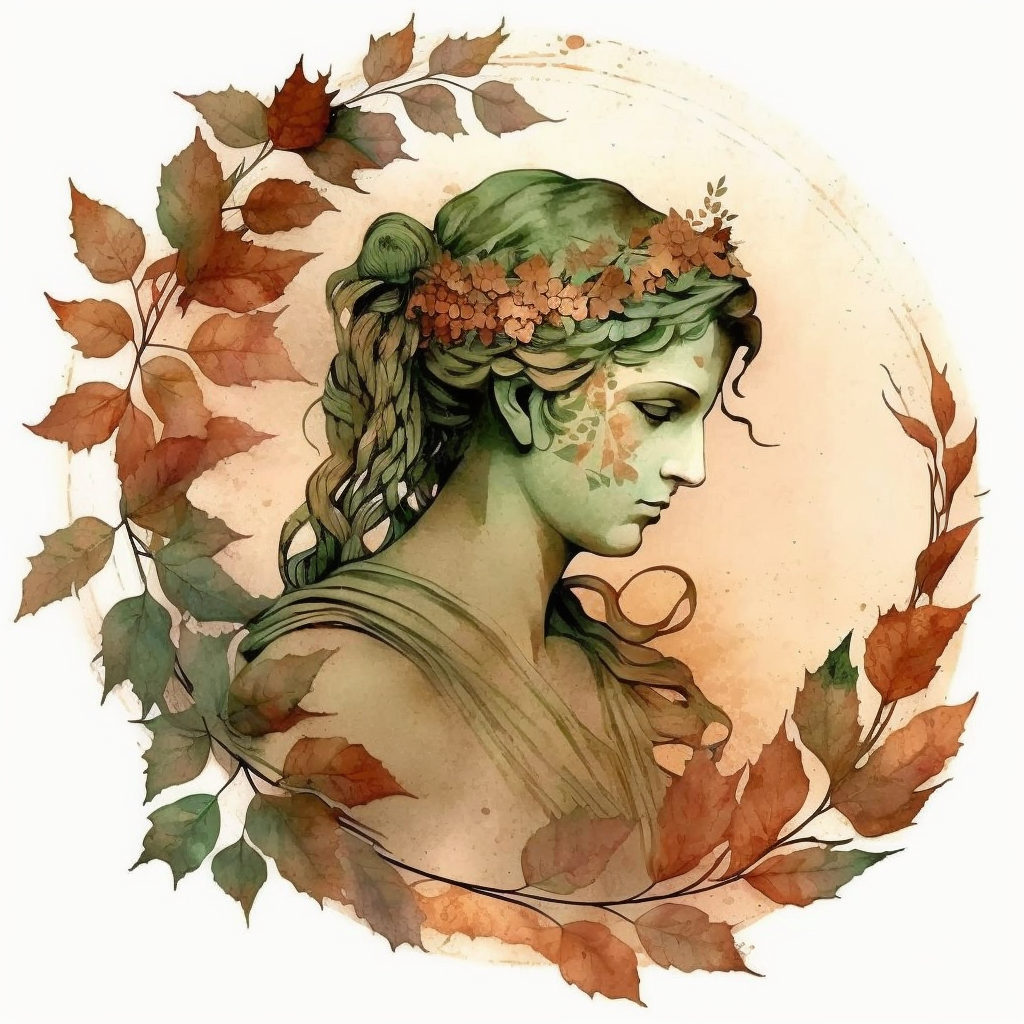
Ancient Greek Worship of Demeter
As stated above, Demeter was worshiped in many communities throughout Greece, particularly in rural areas where agriculture was an important part of daily life. She was honored in various festivals and ceremonies throughout the year, including the Eleusinian Mysteries, which were held in her honor. The Eleusinian Mysteries were an important part of ancient Greek religion and were considered one of the most sacred rituals of the time. Participants in the Eleusinian Mysteries were sworn to secrecy, and the exact details of the rituals have been lost to history.
Significance of Demeter
Demeter was an important goddess in ancient Greek religion and culture. She was widely worshiped and revered, particularly by farmers, as her blessings were considered necessary for a good harvest. As such, she was an important part of everyday life for many ancient Greeks, since farming was one of the main jobs or tasks of the time. In fact, farming was an essential part of the ancient Greek economy.
She is still an important figure in Greek mythology and her image and symbols (such as the cornucopia) are still used in art and popular culture today. The story of her daughter Persephone and the cycle of the seasons is still a popular subject in literature and art. Her role as the goddess of agriculture and fertility is also still relevant in modern society as she is associated with the abundance of food, and the fertility of the land.

